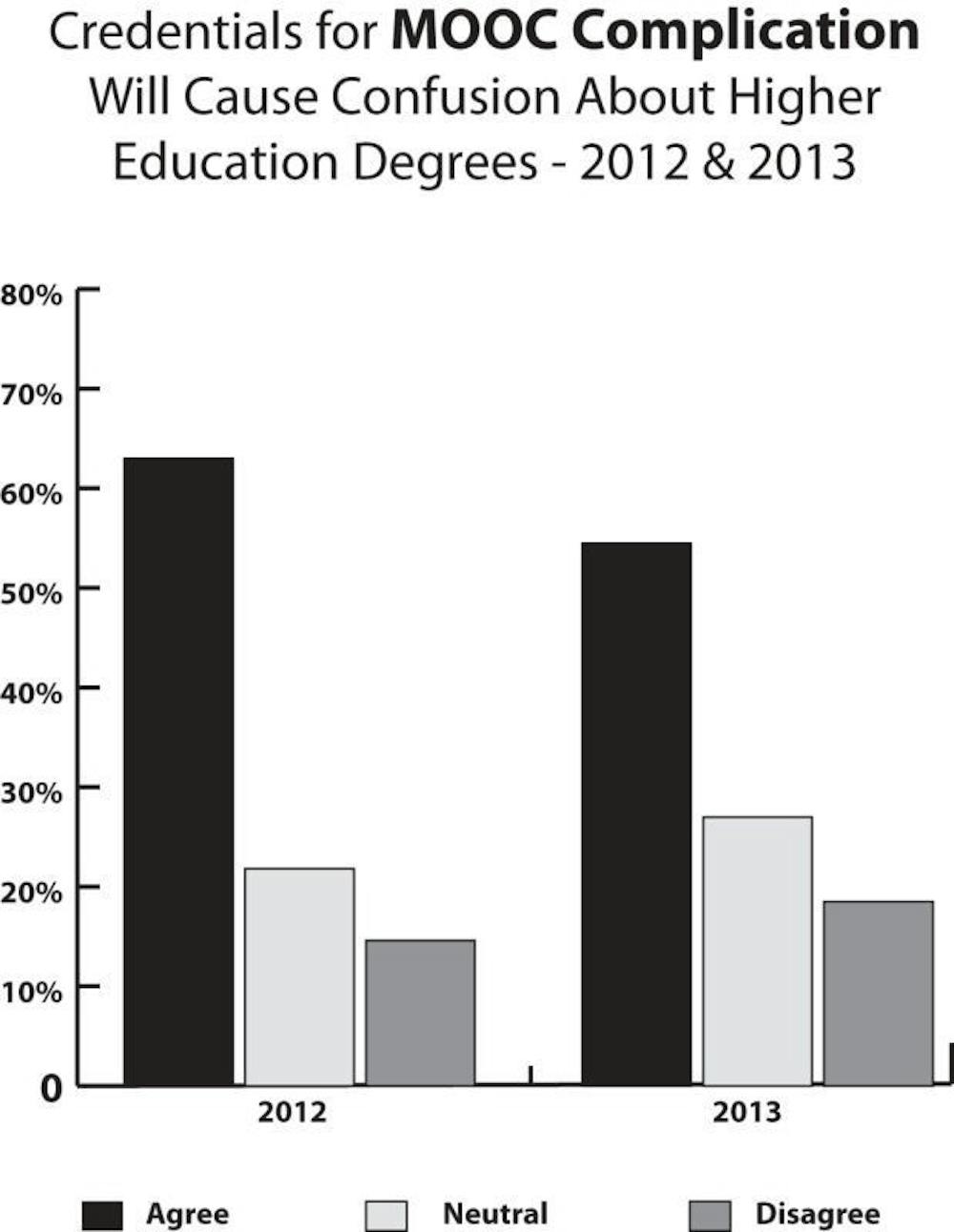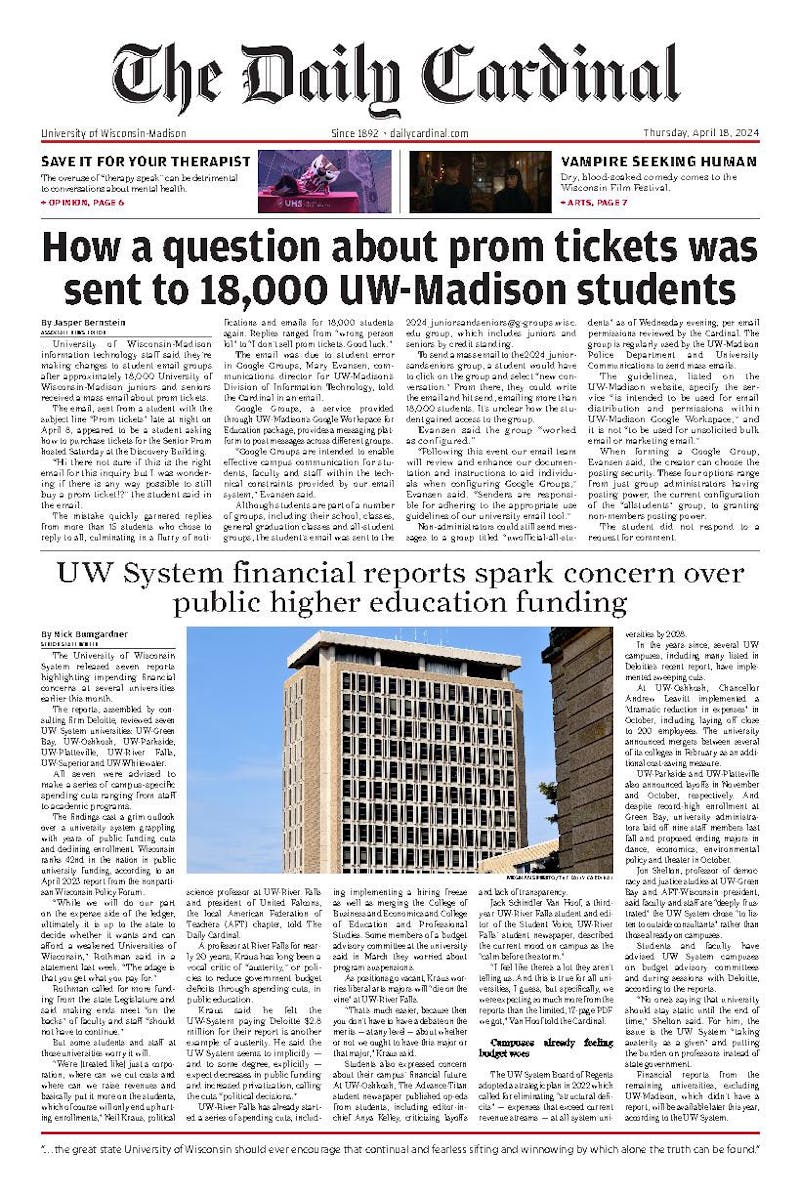Moving from a traditional lecture hall setting to an online digital classroom is a phenomenon that those in higher education are consistently debating.
Massive Open Online Courses, the latest trend of online higher education, embody the idea of fostering large-scale participation and education through open access on the Internet. While the idealistic program has good intentions, the presence of online programs such as MOOCs cause confusion about the traditional higher-education degree. MOOCs promise a free education to anyone who signs up for the course, but are online students learning as much as they would in a traditional classroom setting?
MOOCs are a relatively new trend in higher education, and according to a 2013 Survey of Online Learning Report from the Babson Survey Research Group only a small portion of higher education institutions are experimenting with MOOCs and a large number of those are in the planning stages. MOOCs are different from regular online course instruction because those who can enroll in a MOOC do not have to be registered students at a school. Secondly, open online courses have the capability for unlimited participation and there is no cost. Thirdly, no credit is given to those who finish a MOOC.
The number of higher education institutions offering MOOCs grew slightly from 2.6 percent in 2012 to 5 percent in 2013. Fifty three percent of higher education institutions report that they are undecided about MOOCs and only 23 percent of academic leaders believe MOOCs are a sustainable method of online education, which decreased from 28 percent in 2012. Perhaps the most important result of this report is that 64 percent of academic leaders are concerned that the credentials for completing a MOOC will cause confusion about higher education degrees. This number is up from 55 percent in 2012. The University of Wisconsin-Madison is part of the 5 percent of academic institutions offering MOOCs and is currently in phase two of the MOOC integration process.
“MOOCs are a means to increase the range of ways we can offer education to learners,” former Chancellor David Ward said in a statement Feb. 20, 2013. “The future of learning is connecting with people where they are at—increasingly, those places are online. We fully recognize the necessity for direct personal communication in higher education, but we must also experiment and explore the potentialities of online technologies.” Additionally, Provost Paul DeLuca said MOOCs will not only provide an alternative means of education for students but also for the university. “Students will benefit from having additional options in their education, and we will learn much from these courses that will help us in our future educational efforts,” DeLuca said in the February statement.
Creating alternative education models to “meet people where they are at” is one of the most important aspects of MOOCs and other forms of online education. For that reason, I commend the idealistic characteristics of innovative online education. But the problem lies in that for the course to be successful, the students enrolled in MOOCs need to have the personal initiative to complete the class, which is difficult to track. Accountability measures are lacking in MOOCs. Are the resources spent investing in MOOCs worth it if students are not finishing the classes or are not gaining as much as they would in a traditional classroom setting?
The Chronicle of Higher Education reports there is movement toward credentialing MOOCs. “Badges” are the latest method utilized by the free online education group called the Khan Academy. These “badges” are used to show students have mastered certain skills learned through an online program. Another method the article references is the idea of certificates.
But these methods still pose confusion over the value of a college degree. What does a certificate or “badge” in a MOOC look like to a potential employer? And how does that differ from what a college degree looks like on a resume?
MOOC credentialing still remains confusing to academic leaders, as exemplified by the 9 percent increase in survey takers who believe credentials for MOOC completion will cause confusion about higher education degrees. As MOOCs progress, there will be many questions to answer. There’s always the financial question of how to keep online programs from becoming a drain on a university. Additionally, there’s the quality aspect to consider. Do MOOCs provide as successful of an education as a traditional classroom setting? MOOCs are beneficial in that they open education to a massive online audience at no cost. But whether they will contribute positively in a sustainable way to the higher education environment remains to be seen. As MOOCs continue to become more common within universities, it would be wise to weigh whether or not this form of online education is a worthwhile investment.
Abby is a junior majoring in journalism. Please send all feedback to opinion@dailycardinal.com or actionproject@dailycardinal.com.






